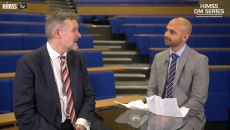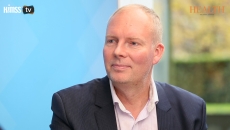Consumer
The new site contains information about sexual health, hair loss, weight management, diabetes, and men's health.
The key to being able to deliver the right care, at the right time and with the right information is interoperability, says Stephen Bromhall, CIO at East of England Ambulance Service NHS Trust.
While recognising their potential, the authors have warned against their use in the current state.
The new investigation also found substantial differences between the performance of specific devices, with consumer products generally outperforming research wearables.
Estonia's citizens have full access to how their data is used in managing their healthcare, which helps ensure trust remains high between the appropriate stakeholders, says Kalle Killar, deputy secretary general at the country's Ministry of Social Affairs.
Reducing the rate of healthcare-associated infections and securing patient information are key when aiming to achieve high quality patient care, says Benjamin Philippe, EMEA Healthcare Sales and Business Development Lead at HP Inc.
The social media giant is also planning on giving researchers aggregated and anonymized mobility data.
Women in California experiencing menopause can sign up for video consultations and prescription deliveries through CurieMD's new platform.
The MobiHealthNews staff shares its thoughts on how HIPAA, investor funding, digital health commercialization and other focus areas will be changing over the course of the new year.
The system may now be used to target patients' internal globus pallidus, a portion of the brain associated with Parkinson's disease symptoms.


